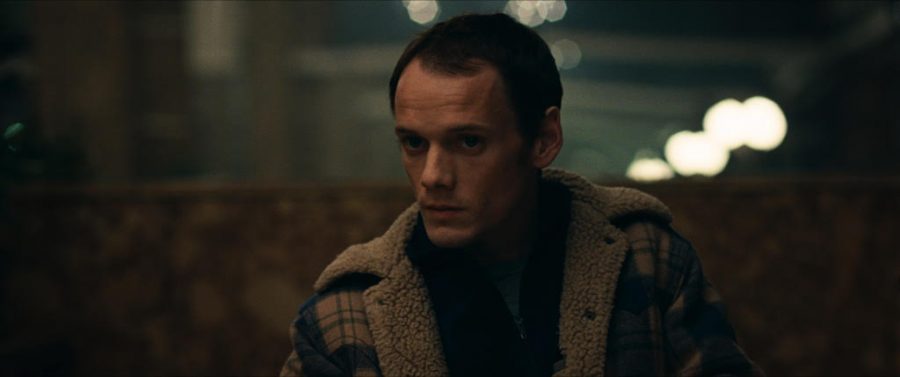‘Porto’ Paints an Incomplete Picture
This film examines the minute details of Jake and Mati’s romantic rendezvous, consisting predominantly of their chance meeting and its brief aftermath.
November 14, 2017
The beauty of the first encounter: this sentiment is the immediate driving force behind Gabe Klinger’s film “Porto.” It opens with Jake (Anton Yelchin) and Mati (Lucia Lucas) glancing at one another on a supposed date at a cafe. Their romantic gazes are spliced in a clip with stupendous shots of the Portuguese city which gives the film its title. The result of this introductory sequence is a grandiose grace that dominates the film’s 77-minute runtime, adorning the city of Porto with a picturesque quality that parallels that of the greatest of big city cinematography. But despite its unabashedly stunning imagery, “Porto” cannot solidify a similar beauty for the remainder of its narrative.
The film examines the minute details of Jake and Mati’s romantic rendezvous, consisting predominantly of their chance meeting and its brief aftermath. But “Porto” does not relay this event in chronological order. Instead, the film is split into three chapters: Jake, Mati and Jake and Mati.
The beginning of Jake’s chapter brings a distinct change: the widescreen format which opened the film is now a cropped screenshot on film, rather than digital footage. This stylistic modification designates the after portions of the plot, and the film alternates between showing pieces of the less idealized outcome (in Portuguese) with further clips of the opening conversation (in English). This meshing of the past and present makes the first two chapters infused with knowledge of the fateful encounter before it is told in full in the Jake and Mati chapter.
This type of narrative weaving would not be an issue in itself, yet here it shines a light on all the faults within “Porto’s” polished infrastructure. Having knowledge about the end result early on in the film’s chronology makes it hard to sympathize with the intimacy embedded throughout the film. Many of the flashback scenes take place at the cafe from the beginning, but juxtaposing the flashbacks with the current timeline of the film makes these scenes feel cumbersome and less gratifying.
To an extent, the film is aware of this. Perhaps this explains the onslaught of graphic sex scenes that occurs toward the finale. Despite the meticulously crafted staging and lighting of these sequences, their overbearing length makes them feel gratuitous, as though they supplement the emotional disconnect felt between the audience and Jake and Mati.
This disconnect stems from coerced chemistry between leads Yelchin and Lucas, another casualty of the film’s structure. A plethora of scenes featuring the two come across as physically awkward. Some of this inevitably stems from the organization of the scenes and outpouring of information, particularly one scene in the chapter on Jake where his actions make it difficult to pity his emotional outpouring later. Ultimately, the plot infiltrates the sentiment, which prevents the film from being the profound experience it aims to be.
As the late Yelchin’s swan song, “Porto” cannot be praised enough for its visual softness and beauty. Wyatt Garfield’s delicate cinematography grants the Portuguese city a timeless aura. However, the lasting impacts of the imagery do not transfer their might to the story, which needed more time to recognize itself as a complete picture.
“Porto” opens in New York theaters on Friday, Nov. 17.
Email Matthew Holman at [email protected].

























































































































































